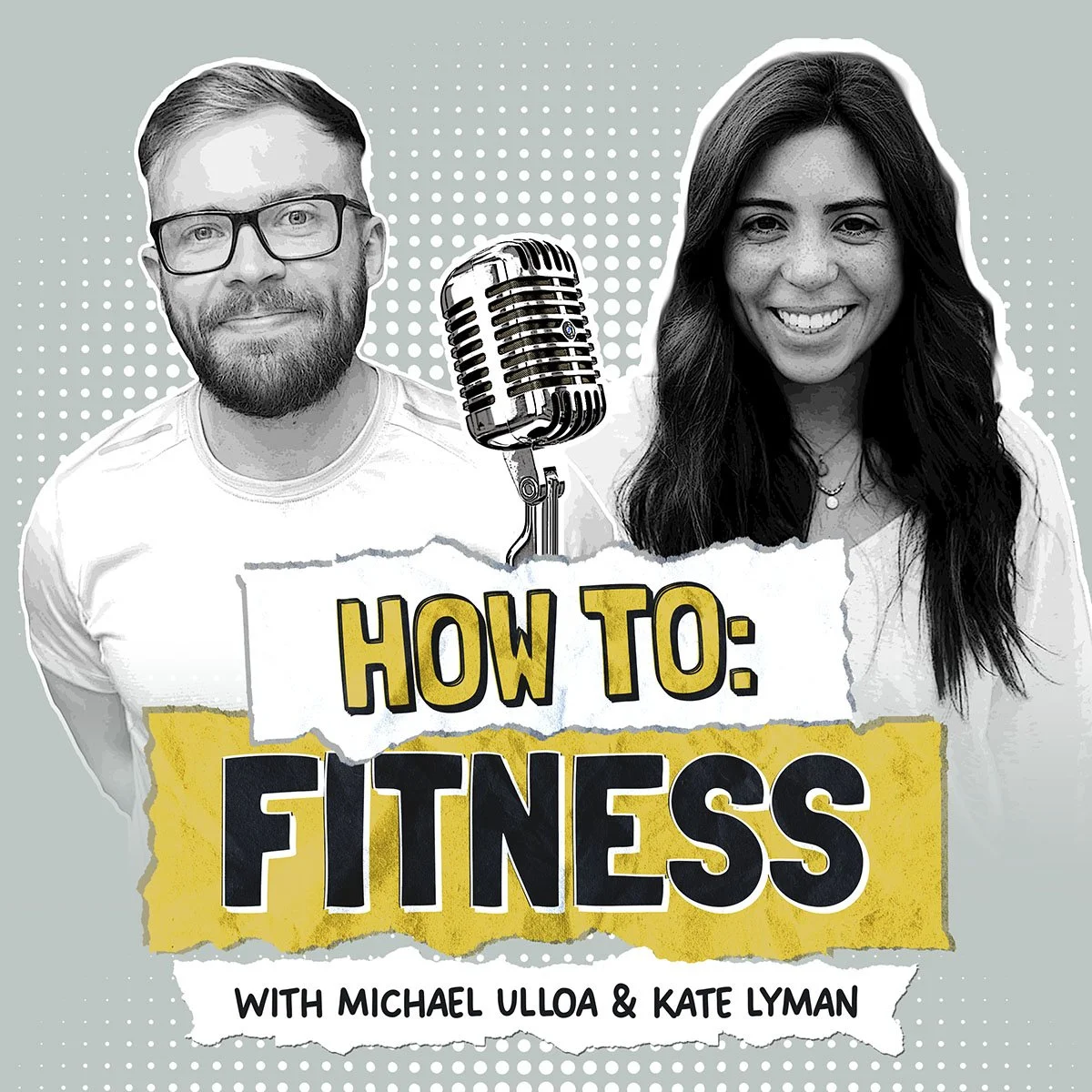Why We’re So Obsessed with Ancestral Diets (and Why It’s Misleading)
Ancestral eating is everywhere right now. Whether it’s liver on your feed, raw milk in your DMs, or someone telling you that grains are toxic - the trend inescapable. But how much of it is actually helpful? How much is science-backed? And how much is just modern wellness culture (but like… in a loincloth…)?
We talk about the ancestral diet trend, what our ancestors actually ate, and whether it makes sense to take nutrition advice from caveman cosplay influencers in the most recent How to: Fitness podcast episode:
Listen here:
What Is Ancestral Eating?
Well, it depends on who you ask.
Some people interpret ancestral eating as going full carnivore: steak, liver, raw dairy, and maybe some testicles for good measure. Others think it means going grain-free and only eating local, organic, "natural" foods. Then there are those who say you should eat like your specific ancestors. There are many interpretations of what eating “ancestral” means and on the surface, it could sound wholesome:
"Go back to the basics."
"Eat how humans were meant to eat."
But here’s the thing: there is no one ancestral diet. Human diets have always been diverse, based on geography, climate, season, and survival. There’s no universal, perfect way of eating from the past that guarantees better health today, and romanticizing what our ancestors ate doesn’t always match what they actually ate.
What Did Our Ancestors Actually Eat?
Archaeologists and anthropologists have shown that early humans ate everything from wild tubers and barley to fish, fruits, and yes, meat. Fossilized dental plaque has revealed starch granules, plant residues, and grains dating back over 100,000 years. And while the agricultural revolution is often labeled as the downfall of our nutrition, history shows us that bread has been around for 14,000+ years (long before agriculture) and that grains, cereals, and tubers have played a significant role in our ancestors’ diets (meaning: no, they probably weren’t eating “low carb”).
The most important thing to note is that our ancestors didn’t eat for longevity, performance, or optimal health. They ate to survive. Evolution didn’t select for heart health at age 75; the whole goal was to not starve and make it long enough to reproduce.
In this podcast episode we dive into some of the unsavory key players in the ancestral craze, namely Weston A. Price and Paul Saladino (aka Carnivore MD). Get the full scoop by listening to the episode:
embed
4 Reasons the Ancestral Diet Isn’t That Simple
There are absolutely valuable takeaways in ancestral-style eating. Eating more whole and minimally processed foods, reducing reliance on ultra-processed products, and connecting with where your food comes from are a great way to improve the overall quality of your nutrition.
Those ideas are valid and, quite honestly, aligned with a nutrient dense and diverse diet. The problem is clinging to a fantasy that we should eat exactly like people from 10,000 years ago when we navigate an entirely different world than our ancestors did.
Here are some of the problems with romanticizing the past:
1. Our Food Is Different Now
Today’s broccoli, bananas, and blueberries aren’t the same as they were thousands of years ago. We’ve selectively bred crops for taste, shelf life, and digestibility. Modern food isn’t "unnatural" just because it’s different; science has helped us increase access to more variety.
2. Additives and Preservatives Aren’t the Enemy
Not everything you can’t pronounce is toxic. Many food additives serve important functions, like keeping spinach fresh or keeping nut butter from separating. They’re heavily regulated and often derived from natural sources. Demonizing all additives is oversimplified and unproductive.
3. We Live In A Complex Food Environment
Our ancestors didn’t have access to a grocery store snack aisle every few miles. They weren’t juggling online meetings, toddlers, fitness goals, and a constant barrage of advertising. Today’s food environment is built for overconsumption and convenience and is an entirely different universe from the food environment of our ancestors. It’s not a moral failing on our part; it’s modern life. Modern life requires modern strategies, like focusing on more whole foods and fewer ultraprocessed foods and buying the best options for you when in the grocery store.
4. It Encourages Shame and Rigidity
The ancestral eating narrative often implies that you’re doing it wrong if you don’t make everything from scratch or eat liver daily. That moral framing can lead to disordered eating, food anxiety, and shame over completely normal choices (like buying store-bought bread instead of laboring over your own sourdough). Any time we eliminate whole food groups from our diets, we’re entering restrictive territory that puts our relationship with food at risk.
So... Should We Eat Like Our Ancestors?
Eat more whole foods? Yes, please.
Cook more meals at home? Yes, absolutely, when you can.
But let’s not pretend that we need to drink raw milk or avoid all processed foods or that our cavemen ancestors had everything figured out.
While there are major challenges in our current food system (please don’t think I’m ignoring that part; that’s a huge factor we’re up against in our current food environment!), we have evolved to thrive on many different types of diets. There isn’t one ancestral formula for health, and what matters most is that our nutrition supports our bodies, activity levels, lifestyles, etc. - while also taking into account the modern day conveniences and marketing strategies we’re up against.
The Bottom Line
Ancestral eating isn’t inherently bad. But it is often misrepresented, oversimplified, and used to push extreme dietary views that don’t align with modern science or real life.
At KLN, we help clients build flexible, sustainable habits that work in this world—not the Stone Age. That means evidence-based guidance, whole foods and convenience foods, and no food shame.
Want to learn more? Tune into our latest podcast episode: "Why We’re So Obsessed With Ancestral Diets (And Why It’s Complicated).
Resources:
To Follow the Real Early Human Diet, Eat Everything by Kate Wong
The Evolution of Diet by Ann Gibbons
The Ethics of Ancestral Eating by Caroline Stewart
Neandertals ate their veggies, their feces reveal by Ann Gibbons
Need more no-nonsense nutrition information in your life? Sign up for my weekly email each Friday. Get nutritional nuggets, recipes, troubleshooting, and more reasons to ditch restrictive diets and find a flexible (and enjoyable) approach to your nutrition.















